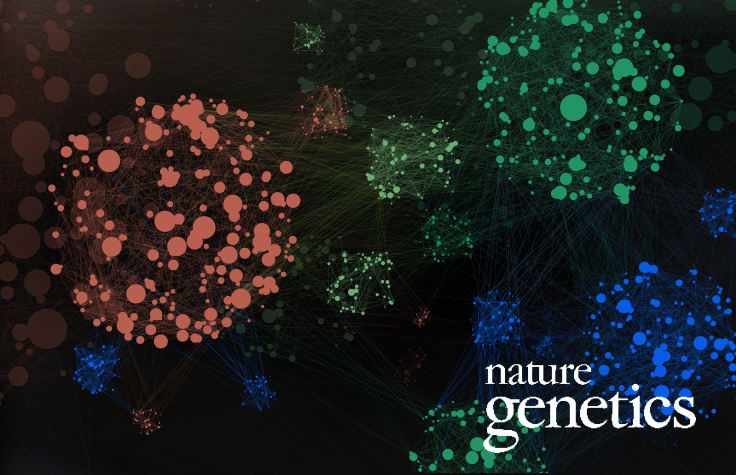SNP and SNV Genotyping

What are SNV and SNP Genotyping?
SNP and SNV genotyping are techniques that analyze genomic sequence variations. These single-base substitutions are typically detected using real-time PCR, microarrays, or next-generation sequencing (NGS) techniques.
A single nucleotide variant (SNV) is a variation of a single nucleotide in a population’s genome. Like SNVs, a single nucleotide polymorphism (SNP) is also a single base substitution, but it is limited to germline DNA and must be present in at least 1% of the population.

Why Genotype for SNVs or SNPs?
Detecting a change in a single nucleotide can provide essential insights if it is associated with a particular disease or a relevant phenotype. For example, certain SNPs are associated with heart disease, immune dysfunction, cancer, and many other diseases. SNPs can also be associated with how individuals respond to certain drugs, leading to a more personalized approach to medicine through pharmacogenomics. Similarly, genetic variations can identify how genes influence phenotypes in plants and animals to improve agriculture.
Comparing SNP and SNV Genotyping Techniques
Real-Time PCR
- High sensitivity
- Familiar workflow
- Capital equipment available in most labs
Microarrays
- Trusted data quality and proven track record
- Scalable and cost-effective for detecting known SNPs in large population studies
- Can focus on target-rich areas
- Robust data analysis pipeline and uncomplicated variant interpretation
NGS
- Unbiased variant discovery using only limited knowledge of the presence or nature of the variants
- High-throughput capabilities and scalability
- Small sample size input
- Emerging user-friendly tools to simplify data analysis
Array-Based SNP Genotyping
Microarray-based SNP genotyping offers several key advantages for detecting variants of interest. Microarrays can analyze specific genomic regions to efficiently detect known SNPs that are relevant to your biological system. By analyzing thousands of samples in a scalable workflow with Illumina array platforms, you can be confident about your data quality.
NGS-Based SNP Genotyping
NGS-powered SNP genotyping is a powerful approach for discovering important new genomic variants. Analyze whole genomes or perform deep sequencing in target regions with higher sensitivity and discovery power compared to other technologies. By harnessing the ultra-high throughput capabilities, scalability, and speed of NGS, you’ll be able to accelerate your discoveries of novel SNPs and SNVs.

From association to insight with SNPs
Drs. Nadav Ahituv, Professor at UCSF, and Gosia Trynka of the Sanger Institute and Open Targets, discuss the latest advances in sequencing technologies to find functional SNPs from genome-wide association studies (GWAS). Learn how they link SNPs with functional variants to provide insights into disease mechanisms and other important traits.
View WebinarResearchers Discuss SNP Genotyping Insights
Unraveling the many genes in cancer
Read how Drs. Jeffery Weitzel and Kathleen Blazer developed a polygenic risk score for cancer and how their research is opening the door for future personalized treatment strategies through SNP detection.
Cytogenetic analysis using SNP arrays
Dr. Simon Andrew Zwoliński describes how Illumina microarrays identified cytogenetically relevant genes using SNP detection.
Precision healthcare and pharmacogenomics
Read how Dr. Devin Absher, Director of Genomic Health at HudsonAlpha, drives precision healthcare through pharmacogenomics.
Combine NGS with arrays for deeper insights
Optimize your search for SNPs by combining NGS and microarrays for efficiency and accuracy. By using arrays to survey large-scale populations, you’ll be able to quickly detect known SNPs. Further refine your studies by identifying novel variants using our comprehensive range of NGS platforms. Novel SNPs discovered using NGS can be incorporated into future arrays for high-throughput studies. Whether you are looking for versatile benchtop models or high-throughput systems, we offer exceptional service and cost-effective solutions for your needs.
Related Content
Cancer Research
Learn about NGS-based solutions for cancer research, from DNA to RNA, epigenetics, and more. Explore how you can optimize your research with our tailored solutions.
Cell & Molecular Biology
Expand your research horizons and analyze biological systems across the genome, transcriptome, and epigenome using array- and NGS-based platforms.
Pharmacogenomics
See how detecting genomic variations can guide a patient’s response to medicine and achieve a more individualized approach to healthcare.
Genome-Wide Association Studies
Curious about GWAS? Learn about our solutions in GWAS-based studies that revealed key discoveries for complex diseases.
NGS and qPCR Comparison
Read about key differences between qPCR- and NGS-based technologies related to cost, efficiency, scalability, and most of all, discovery power.
Featured Solutions
Illumina DNA Prep with Enrichment
A fast, integrated workflow for a wide range of applications, providing targeted resequencing with custom panels, fixed panels, and whole-exome enrichment.
NextSeq 2000 System
NextSeq 2000 is redesigned from the ground up to maximize future-proofing, offering sequencing power for high-throughput applications such as single-cell gene expression, whole-exome sequencing, and shotgun metagenomics.
Infinium Global Screening Array
This next-generation genotyping array provides a scalable, cost-effective solution for population genetics, pharmacogenomics studies, and precision medicine research.
Infinium CytoSNP-850K BeadChip
This consortium-built array provides comprehensive coverage of cytogenetically relevant genes for congenital disorders and cancer research.